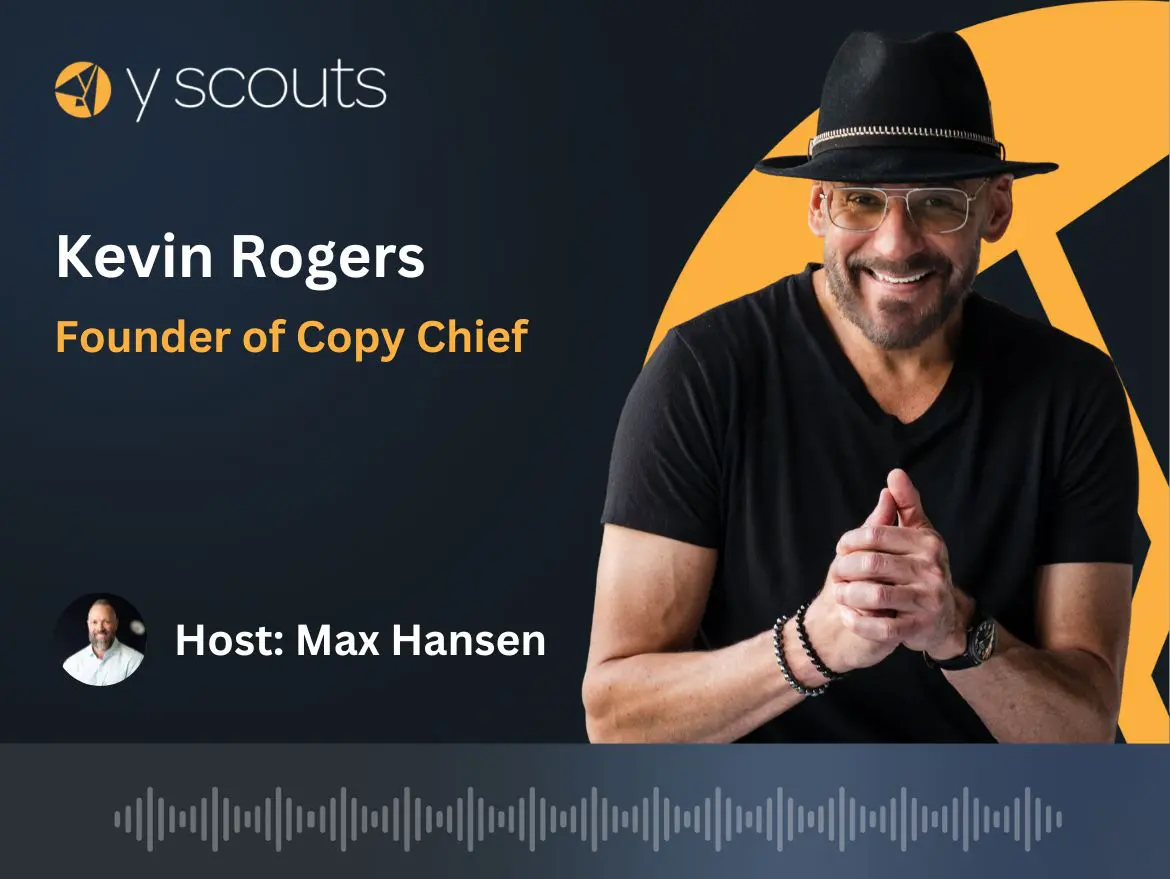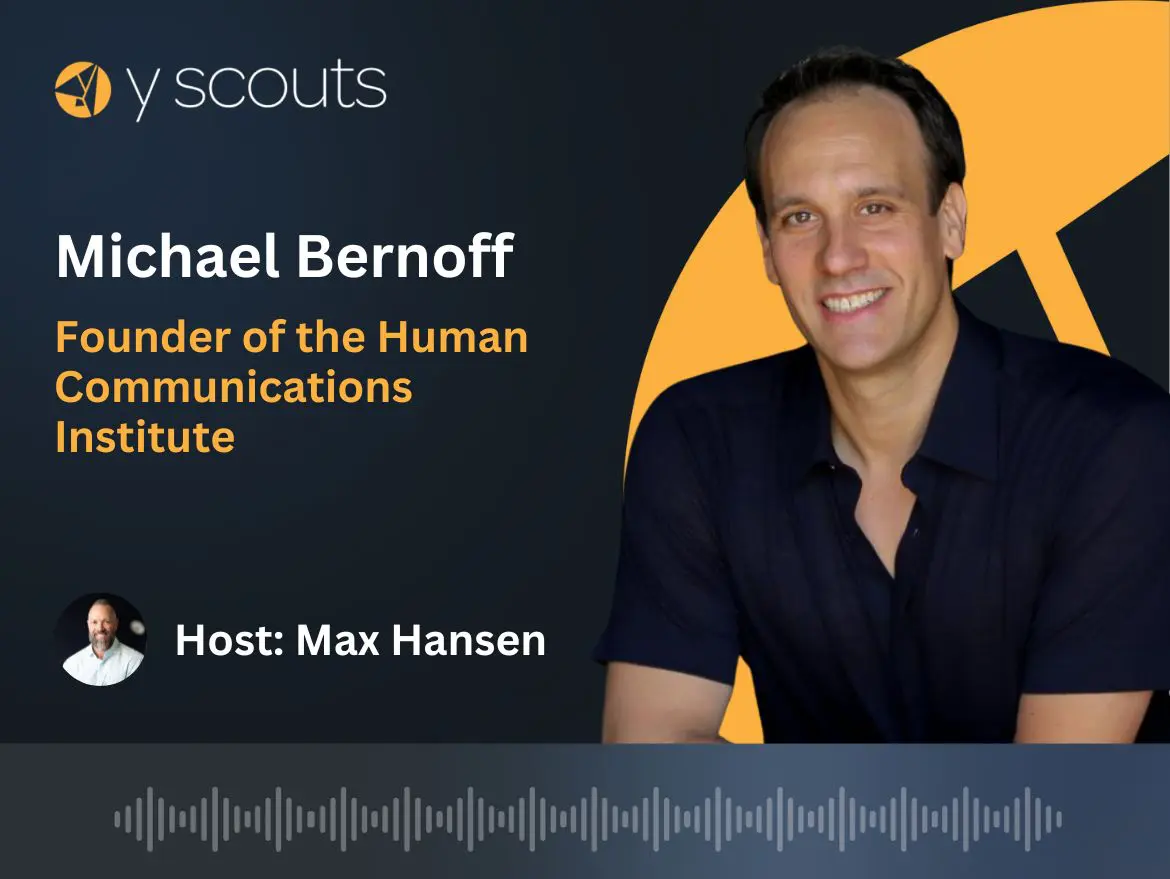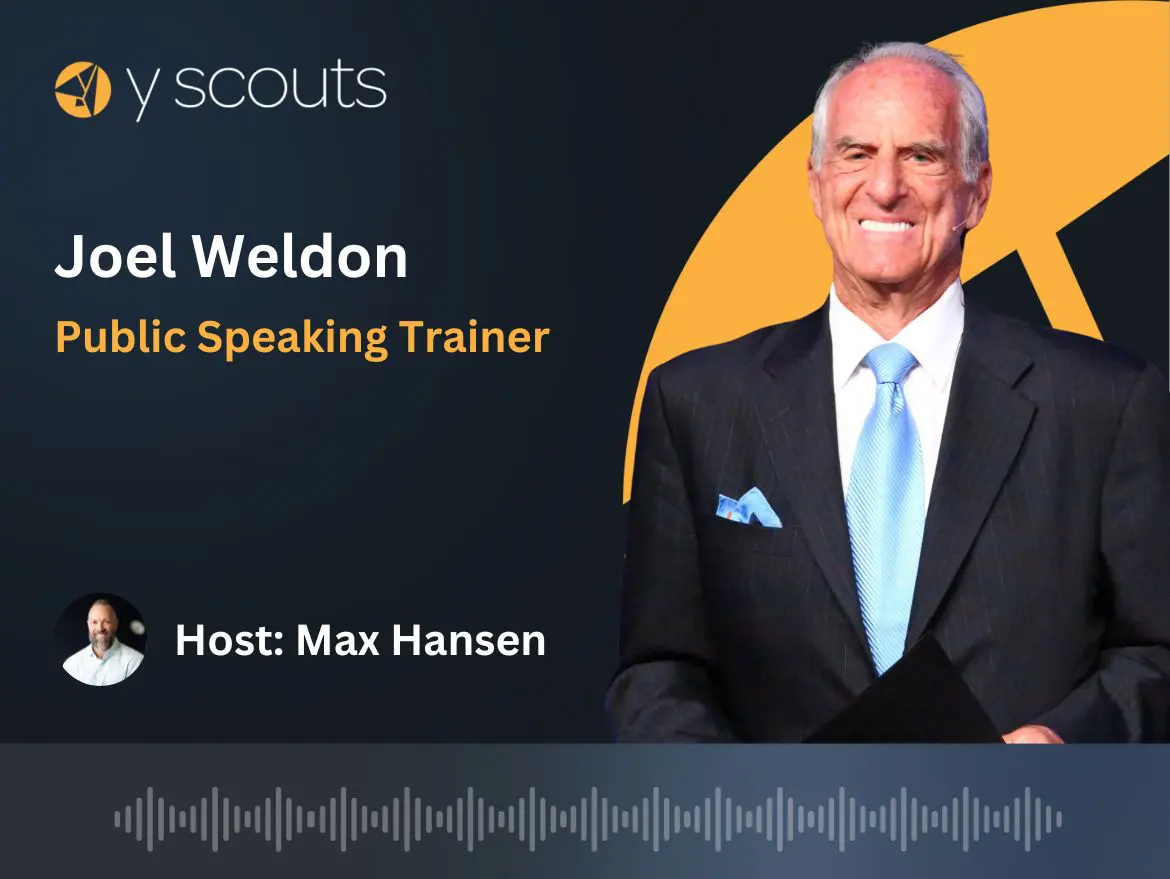Cameron Herold wasn’t the smartest kid in school. In fact, if he would have allowed his C-average in school determine his fate, he would not have achieved the level of success he has so far. From his earliest days, Cameron was destined to become an entrepreneur. He built and led several businesses — many you may have heard of, including College Pro Painters and 1-800-GOT-JUNK? He admittedly suffers from ADHD and believes this form of neurodiversity has allowed him to see the whole picture when confronted with everyday business challenges. He’s the author of three high-impact business books, “Double Double,” “Meetings Suck,” and the “Miracle Morning for Entrepreneurs.” Cameron has been called the “best speaker” by Forbes magazine publisher Rich Karlgaard. He’s also spoken in 28 countries around the world.
This episode also happens to be the first episode I’ve recorded live in our studio in Scottsdale, Arizona. It was an absolute blast. I decided to take the in-person opportunity and swerve into some lesser-publicly known interest areas about Cameron, including his Burning Man experiences, his fascination with art, and our shared love of music. This is a great conversation with the man known as the CEO Whisperer. Enjoy this one-of-a-kind episode with Cameron Herold.
Table of Contents
ToggleShow Highlights
- 2:30 – Upbringing in Sudbury, Canada
- 6:00 – Entrepreneurial household
- 7:20 – Weekly allowance experiment & raising kids to understand the working world
- 10:10 – U.S. education system
- 15:42 – ADD, “neuro-diversity” and its contributions to Cameron’s successes
- 19:30 – The creation of 1-800-GOT-JUNK? — and forming a culture around a business meant for picking up trash
- 22:40 – Having people as the only sustainable competitive advantage in a business (and a discussion on purpose, values and mission)
- 24:30 – Transferring a CEO’s vision for success into reality
- 27:23 – Relentless learning
- 28:17 – What inspires Cameron Herold?
- 29:36 – The COO role
- 31:18 – Where he draws inspiration and creativity from — Burning Man
- 34:11 – Accepting insecurities and vulnerabilities in leadership
- 43:15 – Appreciating art
- 50:15 – Culture vs. foosball, perks and “stuff”
- 53:40 – The 5 key components needed to run more productive meetings
Show Links
- Cameron’s TED Talk on raising our kids to be entrepreneurs
- Cameron’s personal website
- Books: Double Double, Meetings Suck, Miracle Morning for Entrepreneurs
- The COO Alliance
Cameron Herold Podcast Interview
You grew up in a household where entrepreneurship was the only way. Share with me a little bit about your father, because I know he’s had a tremendous impact on you growing up.
My father was really my first mentor. The value of coaching is to have that mentor who has been there before you to guide you so you don’t have to make the same mistakes. I hear people saying all the time, failing is great and learn from failure — screw that. Why do you have to learn from failure? Why not learn from somebody else’s failure so you don’t have to actually make those mistakes?
So my dad was really my first coach and mentor, but he also grew up in a family of entrepreneurs, as did my mom, so my two grandfathers were entrepreneurs, my father was an entrepreneur. He raised the three kids, my brother and sister and me, all to run our own companies. I even married into a family of entrepreneurs — my wife is an entrepreneur, her brother’s an entrepreneur, and both her mother and father are entrepreneurs as well. It’s kind of bizarre it’s the only world I know — running companies.
You’re a father of four. This idea of entrepreneurship has had such a wonderful impact on your life — and one of the things I took away when I saw your TED Talk on raising kids to be entrepreneurs, was the lesson you began experimenting with around the concept of the weekly allowance. Share with us what this experiment was, and this critical learning opportunity at a relatively young age for kids about the world of work.
You think about an allowance and the way it’s typically structured: you give your child the same amount of money every week and you nag them to do their work to get that check. The kids aren’t motivated to do it, because they know they’re getting the same amount every week. And the parents have to hound them and nag them, and then begrudgingly give them $5 or $20 or whatever.
So in my world, that equated to grooming a kid to expect a paycheck, the same amount of money, the same amount of work. And then you try to hold people accountable. Well, that’s not entrepreneurship. Entrepreneurship means spotting opportunities, negotiating their worth and finding a way to hustle. Then, you get onto the next opportunity and make money and realize there’s not an unlimited amount of money out there. You work hard, apply yourself and spot the opportunities.
I was raised in a world where we were given lists of chores and shown all the things that needed to be done. Our parents would kind of negotiate how much they’d pay us to do other things. “Hey, the garbage needs to be taken out, that’s worth three bucks.” “No way, I’ll give you fifty cents.” Me: “Fifty cents? Forget it!” And my brother would say, “I’ll do it for fifty cents.”
You learn about competition, so you learn about negotiating, you learn about fair pricing, you learn about hustle. Or, you come to your parents and say, “Hey, I noticed the leaves need to be raked, I’ll do it for five bucks,” and they say, “Great,” and you realize you landed it before your sister did because you jumped to the opportunity. So that’s really a good lesson to teach kids. It’s up to you to go out and get it. It teaches kids to not have any expectations and not blame other people, because it’s about you waking up and seizing opportunity.
Let’s dive into your public speaking ability. At what point did you recognize that this was a gift and something that needed to be cultivated, invested in, and really continued as something that would be very pivotal and essential to who you are?
Well, I learned pretty early on you need to be a good speaker to get into a group and to meet people. I was in six schools in nine years. So transferring schools pretty much every 18 months, I had to find a way to get to know everybody. Speaking in front of people was one thing. The second thing was producing radio ads. I wanted to be the person on the radio as a kid, so I had to be confident and then selling stuff, I was going door-to-door and selling all kinds of stuff. Back in those days when a kid ran a lemonade stand, parents wouldn’t stand all day there with them. The parents stayed inside or at the golf course. The kid ran the lemonade stand, and the kid needed to sell and communicate and talk to strangers. So those skills were really powerful.
By the way, the school system is horrible. I am a big critic of the current school system as it stands today. It actually destroys most children’s confidence every single day for 18 years, if you count kindergarten to grade 13 (in Canada). I actually had 18 years of school being told I was stupid, that I was a 62 percenter, which meant that 38 percent of the people were smarter than me. So, imagine coming into a room every single day for 18 years and told you’re not smart. You only scored a D on this, or you failed that. It systematically destroys a human being.
We should be sending kids into school saying, you all get A’s, it’s open book tests, you work together, here’s the problems, work together and get information, teach them how to problem solve, research, look stuff up. But we also shouldn’t tell everybody that they’re stupid; that’s destroying all of us.
And ADD has actually been a huge source of strength — not weakness.
I have 17 of the 18 traits of Attention Deficit Disorder. I’ve been diagnosed as dyslexic with dyscalculia, a numeric form of dyslexia where I transpose all of my numbers. And I’m really on the spectrum for bipolar, for manic depression. I kind of joke about kind of being on the spectrum for Tourette’s, because I say stuff and I don’t want it to come out of my mouth. Thinking out loud is on the spectrum.
So, according to the medical community, I would be a complete disaster with ADD and bipolar and Tourette’s, but these are also strengths for me. The fact that I actually say what’s on my mind and don’t filter is endearing in a lot of ways, but it’s frustrating at times, too. But at least people know I’m not calculating what I’m saying; it kind of just comes out, so they know that whatever I say is what I mean and they can trust that.
My ADD allows me to see everything. As an entrepreneur, I can see what’s happening with the market, the customer, the economy, and time. I’m hyper-aware. I’m not late for things because I’m always aware of everything else around me. But I don’t get so bogged down on detail which is good as an entrepreneur. Now, if I was an engineer or an accountant, that would be bad, but I’m not. My mania is why people follow me — they like the excitement, they love the energy. Well, me crashing afterwards and me feeling stressed and depressed simply equates to me course-directing and needing a break.
Now, the medical community would say those are bad things, but I think I’m not supposed to be a doctor. And teachers would say those are bad things, but I’m not supposed to be a teacher. The reality is that those three-percenters are the entrepreneurs. Maybe we shouldn’t be diagnosing them as a problem. Instead, maybe we should say, “Wow, you’re ADD and bipolar — holy shit you’re actually an entrepreneur! Let’s leverage those skills, rather than medicate you,” because you don’t want to change a person’s natural, innate abilities. So those are my superpowers, not my weaknesses.
I want to focus on 1-800-GOT-JUNK?, because it proved a huge success in your career. It skyrocketed under your leadership and those on your leadership team. Give us a little bit of insight into the company, 1-800-GOT-JUNK? It’s not really a sexy topic to talk about junk. Yet, you guys created something magical.
I knew at a very early age I needed to invest in a career and invest in myself and invest in my skills. So I joined a group called the Entrepreneurs Organization, or EO. By joining EO, I could be around other people like me that I could mastermind with and learn from and build my network. That’s where I met Brian, the founder of 1-800-GOT-JUNK?, which at the time was called the Rubbish Boys.
I was building two companies. I was building a group now called Gerber Auto Collision in the US and Boyd Autobody in Canada, and also a company we built in Seoul. In the four years Brian and I remained in this forum, we grouped together. He got to know what my strengths were. I got to like his vision of where he wanted to take the company. So, I eventually joined him as his 14th employee. I came on as the chief operating officer. When I left, we had 3,001 employees system-wide, we were operating in 330 cities, 46 states in different countries. I ran everything except IT and finance. I ran the call center, sales, marketing, the PR groups, national sales groups, all the franchise locations, and all operations.
So how did you all hold a culture built around the idea of picking up people’s trash?
In college, I had involvement in a group called College Pro Painters. That was probably the first investment in myself that I made in learning the systems and growth and mentoring. One of my mentors, the founder of College Pro, said that building a business has to be slightly more than a business, and slightly less than a religion. It has to be in that zone of cult which is culture. So, I understood at an early age that culture was critical. It’s what attracts customers to you, other A-players, and makes the business grow faster.
I brought that mentality into 1-800-GOT-JUNK? We needed to build a strong culture to serve as a magnet for new employees. Because if we wanted to grow, we couldn’t recruit the old-fashioned ways. They needed to come to us, which meant we needed a magnetic base.
The second part of that is when you own the press, when you own free PR, the more press you get, the more press you’ll always get. How do we teach all our franchises in the corporate group to generate free PR? We ended up landing 5,200 stories about our company in six years — including being on Oprah, and CNN, and MSNBC, and pretty much everywhere. I continue that today, teaching companies all over the world how to leverage the press and culture. When you build that magnetic force, then you can scale.
How often are the CEOs and leaders that you work with maintaining the image or the vision they have? Do they feel like people are picking it up through osmosis, but it’s just not transferring?
Almost every CEO can visualize what their company looks like three years from now, but they keep it inside their own head. So if you’re the only person who’s seen the movie, you know what it’s about, but no one else can see it.
The power of the vivid vision? Take the ideas out of the entrepreneur’s mind, no matter the company size. Get them to write it down as a four- or five-page document. Describe your employees, what the suppliers say about you, what the media says. Describe every single business area in vivid details if you’re standing in the future. Then, everybody can see what it looks like to get the plans and people in place to make it happen. Everyone is operating with that same level of leadership intuition that the CEO has. And that’s the most critical piece in business that’s missing today, globally.
For more episodes of the Built On Purpose Podcast, visit yscouts.com/podcast.
Y Scouts, a leadership search firm, finds purpose-aligned as well as performance-proven leaders to help organizations achieve their missions faster. Ready to supercharge your leadership search and get the right person in your organization? Contact Y Scouts.






